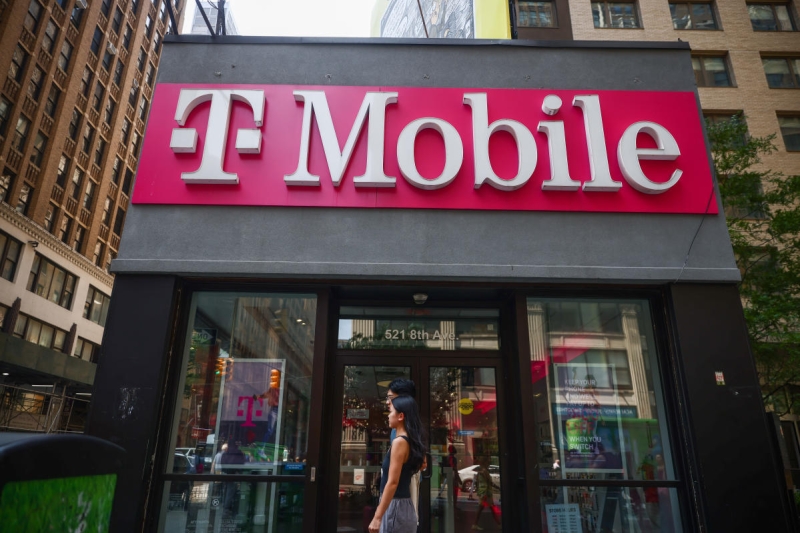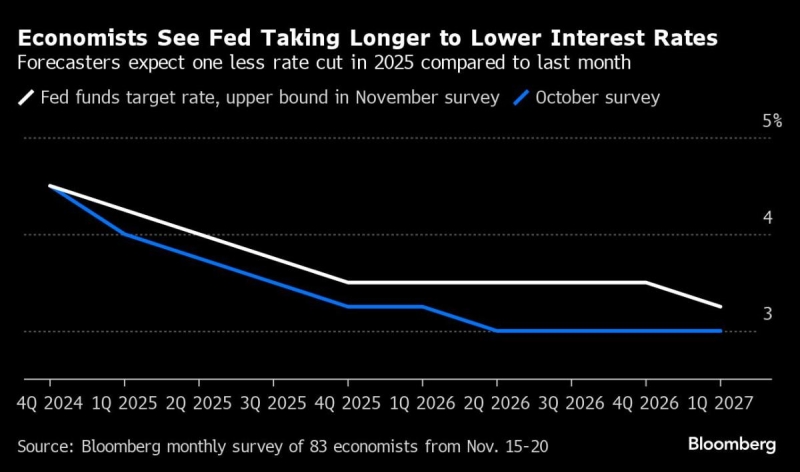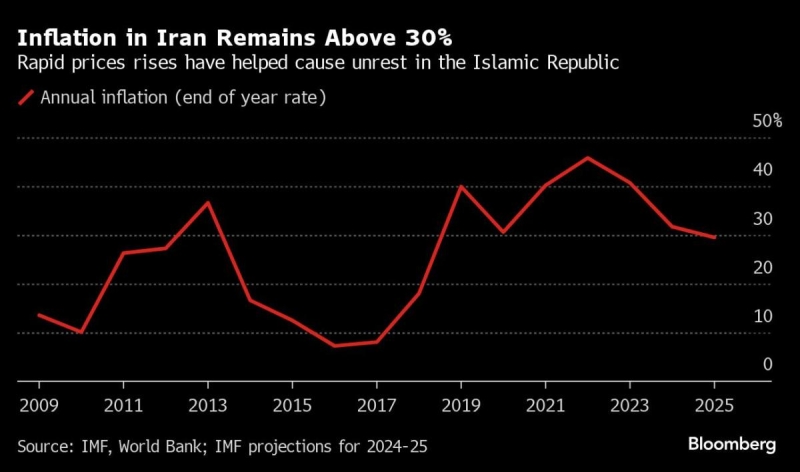
High-octane T-Mobile (TMUS) CEO Mike Sievert is back with more big promises to investors four years after his company's last capital markets day with Wall Street.
The company is targeting a compound annual services revenue growth rate (CAGR) of 5% through 2027, up from its current pace of about 4%, execs outlined at an analyst event on Wednesday afternoon.
T-Mobile is also aiming for $10 billion more in adjusted operating profits through 2027 compared to 2023, with a projected range of $38 billion to $39 billion.
Wall Street was modeling for $37.8 billion in 2027 adjusted operating profits ahead of the event.
The company promised $50 billion in dividends and stock buybacks through 2027, as well.
"We said we would combine these two companies [Sprint and T-Mobile] and complete the most successful merger of scaled telecoms in the history of the industry, and we did that, and we unlocked the value in excess of what we promised. And now it's time for the next chapter," Sievert said on Yahoo Finance moments after the event concluded.
Added Sievert, "We wanted to unveil these plans because investors want to know, after that historically successful run of the last few years, what's next."
T-Mobile stock is up 69% in the past four years, compared to a 27% drop for Verizon (VZ) and a 1% decline for AT&T (T).
T-Mobile Sievert lays out some big growth targets for Wall Street to digest at an analyst day on Wednesday. (T-Mobile)
Barring an economic collapse or recession, there's good reason to believe T-Mobile could hit its new guidance.
For one, the company beat all its guidance for 2020 as adjusted operating profits rose 32% and free cash flow improved by 400%.
Consumers are continuing to upgrade to 5G cellphones and higher-speed home broadband, and the company has recently made a host of key deals.
Read more: Cell phones, furniture, used cars: Here's where prices are easing up as inflation cooldown continues
T-Mobile's $1.35 billion Mint Mobile deal closed in May, giving the company access to more value-conscious phone plan shoppers.
The company is also looking to close on deals for fiber-optic plays Metronet ($4.9 billion), US Cellular ($4.4 billion), and Lumos ($950 million).
"The company [US Cellular] has always been great at smaller markets in rural areas, and that's a big growth strategy for us," said Sievert.
If there is a wildcard on how T-Mobile's analyst day will be digested, it will be the cost to build out the fiber-optic network. Sievert acknowledged the company is still assessing if they need to go after the opportunity even further.
"While there’s comfort in management’s long track record of beat-and-raises from an operational and financial lens, investors remain somewhat unsettled on the fiber strategy for now," Evercore ISI analyst Vijay Jayant said in a client note.
Jayant rates T-Mobile shares at an Outperform rating.
T-Mobile's second quarter showed a telecom business still in growth mode.
Total sales rose 4% from the prior year to $16.4 billion. The company notched 1.3 million net customer additions, pushing it past 100 million postpaid customers for the first time.
Adjusted operating profits increased 9%, while diluted earnings per share improved 34% year over year.
For the full year, T-Mobile expects net customer additions of 5.4 million to 5.7 million. Previously it projected 5.2 million to 5.6 million.
Hitting guidance in 2024 will be partially dependent on Apple's (AAPL) iPhone 16 demand, which has reportedly come out of the gate slow in terms of preorders.
"It [the outlook] might mean that the demand cycle will be a little bit more stretched out as word of mouth builds after people actually get the AI features later. But already our sales are higher than last year. Last year was a good year. Good iPhone launch. This year, they're higher. We're seeing preference for the Pro versus the regular edition," Sievert said.
Three times each week, I field insight-filled conversations with the biggest names in business and markets on Yahoo Finance's Opening Bid podcast. Find more episodes on our video hub. Watch on your preferred streaming service. Or listen and subscribe on Apple Podcasts, Spotify, or wherever you find your favorite podcasts.
In the Opening Bid episode below, former US Commerce Secretary Wilbur Ross explains what people may see during a second Trump presidency.





